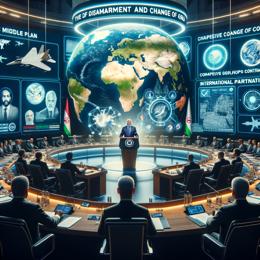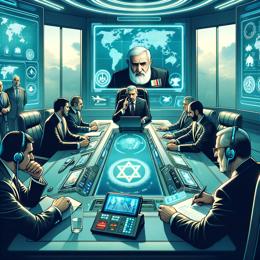Image: AI generated for illustration purposes
Tensions Rise as Hamas Leaders Attend Palestine Solidarity Event in South Africa Amidst Controversy
The recent arrival of high-ranking Hamas officials in South Africa to attend the Fifth Global Convention of Solidarity with Palestine has stirred significant controversy, reflecting the broader international division regarding the Israel-Palestine conflict. The senior delegation, which is engaged in a harsh confrontation with Israel, includes Hamas politburo member Bassem Naim, Hamas representative in Iran Khaled Qaddoumi, and Hamas international relations director for East, Central and Southern Africa Emad Saber. Their presence has been met with sharp criticism from some quarters, while others advocate for engagement and dialogue.
South Africa's historical struggle against apartheid and its ongoing advocacy for human rights have made it a symbolic and strategic locale for discussions on global solidarity moves. The convention co-organized by the Global Campaign to Return to Palestine and the Royal House of Mandela is a momentous event, commemorating both a decade of the Global Campaign’s efforts and the legacy of Nelson Mandela under the theme "Nelson Mandela and Palestine: Confronting Racism till Liberation."
Despite the aims of the convention, the South African Jewish Board of Deputies (SAJBD) has vehemently opposed Hamas's presence, citing the group’s recent attack on Israel that led to substantial civilian causalities and hostage-taking. The SAJBD's view aligns with Israel, the United States, and various Western countries that consider Hamas a terrorist organization. SAJBD national chairperson Karen Milner has highlighted Hamas's Charter and its avowed intent to target Israel and Jews, underscoring the organization's actions on October 7 and subsequent statements by its leadership as evidence of its violent objectives.
In contrast to the SAJBD's stance, the African National Congress (ANC) indicates an openness to meet with the delegation. Obed Bapela, deputy chair of the ANC national executive committee on international relations, has stressed the importance of understanding various perspectives on the Palestinian issue to work towards peace in the region. The discussions, which would include considerations of sanctions against Israel, are rooted in the ANC's long-standing stance in support of the Palestinian quest for statehood and autonomy.
The South African government's official position on the visit, however, remains ambivalent. Minister in the Presidency Khumbudzo Ntshavheni stated there were no scheduled government meetings with Hamas but did not completely dismiss the possibility. Meanwhile, Dirco’s Clayson Monyela affirmed that there would be "absolutely no" engagements with Hamas leaders, distinguishing the government department's policy from other political entities within South Africa.
The gathering of political parties, civil society groups, and the Palestinian solidarity movement in South Africa is thus framed by a broader geopolitical narrative—between those advocating for dialogue with factions like Hamas to foster understanding and those who condemn engagements with an entity they deem extremist. South Africa stands as a stage for the ongoing and deeply entrenched conflict in the Middle East, reflecting the variegated global responses to questions of terrorism, resistance, and the quest for peace.
The visit by Hamas leaders to South Africa, therefore, has opened up a vigorous debate on the nation's role and stance in international conflicts, the ethics of solidarity, and the paths towards conflict resolution. It illustrates the complexity of navigating global solidarity movements, which often require engaging with controversial parties to forward peace, against a backdrop of realpolitik and principled opposition to perceived acts of terror and aggression.










